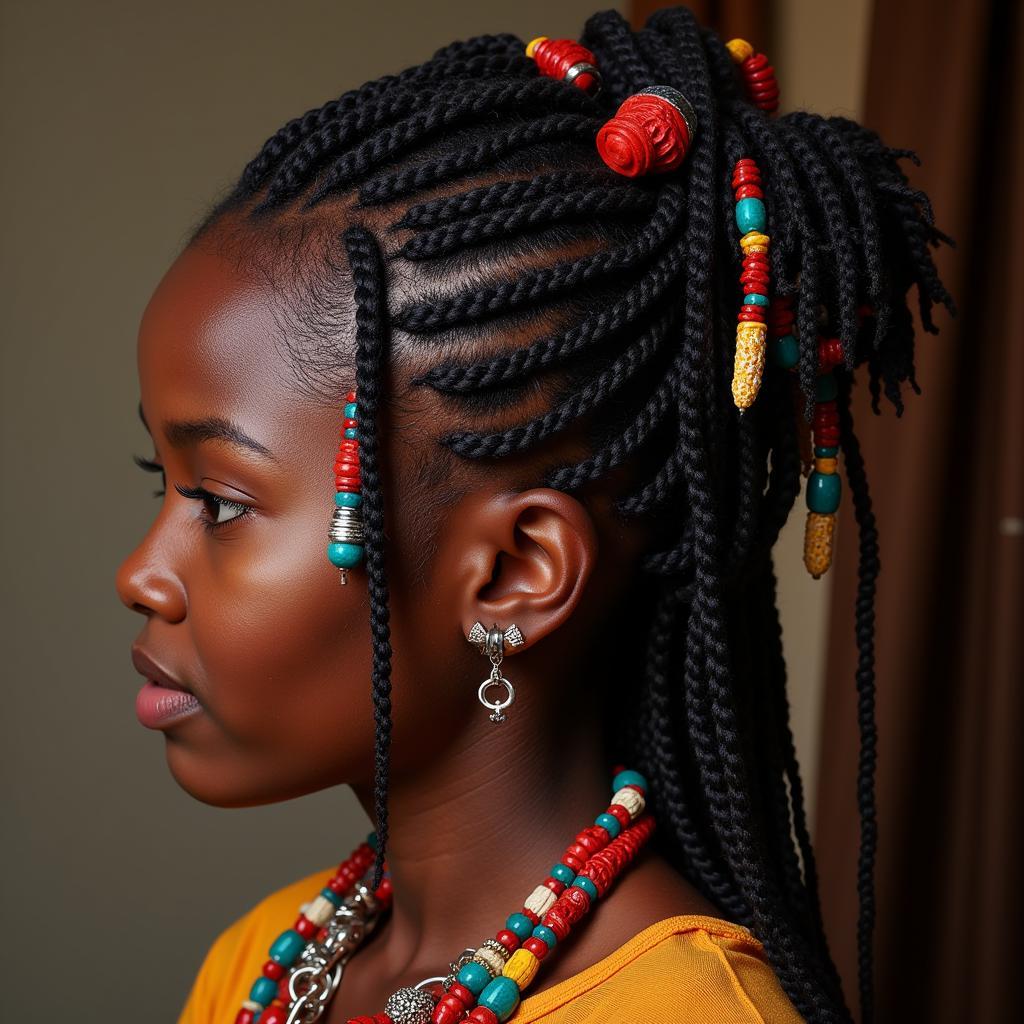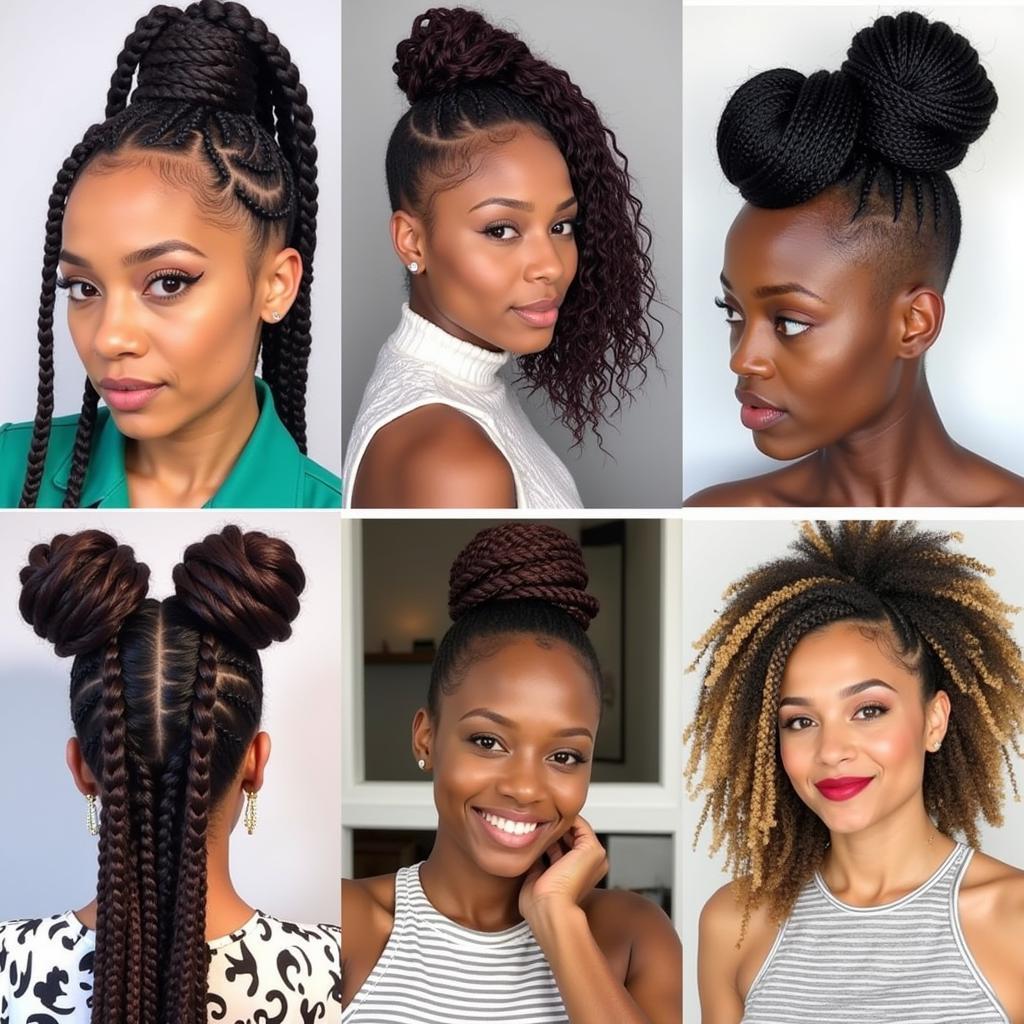African Hairstyle Women: A Celebration of Culture, Creativity, and Identity
African hairstyles for women are much more than just ways to style hair; they are expressions of identity, reflections of history, and celebrations of artistry. For centuries, women across the African continent have sculpted and adorned their hair in a breathtaking array of styles, each one telling a story and representing a unique facet of their rich cultural heritage.
 African women with intricate braided hairstyles adorned with beads
African women with intricate braided hairstyles adorned with beads
The Significance of African Hairstyles
From the intricate cornrows of the Himba people in Namibia to the elaborate threaded hairstyles of the Fulani women in West Africa, each region boasts its signature styles, often passed down through generations. These hairstyles act as visual codes, communicating a woman’s social standing, marital status, age, and even religious beliefs.
More than just aesthetics, many African hairstyles serve practical purposes. Braids, for example, provide a protective style, shielding hair from the harsh climate and minimizing breakage. The thickness and length of braids can also signify prosperity and good health.
Exploring the Diversity of Styles
The diversity of african hairstyles female is truly remarkable. Here are just a few examples:
- Braids: Perhaps the most iconic African hairstyle, braids come in countless variations. From simple cornrows to elaborate fishbone braids and intricate Fulani braids, they offer endless creative possibilities.
- Twists: Similar to braids, twists involve twisting strands of hair together. Senegalese twists and two-strand twists are popular options, offering a versatile and elegant look.
- Locs: Locs, also known as dreadlocks, are rope-like strands of hair formed by allowing hair to naturally interlock. They represent a spiritual journey for many and can be styled in various ways.
- Afro: The Afro is a natural hairstyle that celebrates the texture and volume of coily hair. It became a powerful symbol of Black pride and identity during the Civil Rights Movement.
Modern Influences and Global Trends
Today, African hairstyles have transcended geographical boundaries and become a global phenomenon. Celebrities, fashion icons, and individuals from all walks of life are embracing the beauty and versatility of African hairstyles.
The natural hair movement has also played a significant role in popularizing these styles. Women are ditching chemical treatments and embracing their natural hair texture, leading to a resurgence of traditional African hairstyles.
 A collage showcasing modern interpretations of traditional African hairstyles
A collage showcasing modern interpretations of traditional African hairstyles
More Than Just Hair
It’s important to remember that African hairstyles are deeply personal and culturally significant. Appropriating these styles without acknowledging their cultural context can be offensive and disrespectful.
When embracing African hairstyles, it’s essential to approach them with respect, appreciation, and a willingness to learn about their rich history and cultural significance.
Conclusion
African hairstyles for women are a testament to the continent’s creativity, resilience, and cultural diversity. From traditional braids passed down through generations to modern interpretations that push creative boundaries, these styles continue to inspire and captivate the world. By appreciating the artistry and history behind these hairstyles, we celebrate the beauty and diversity of African culture.